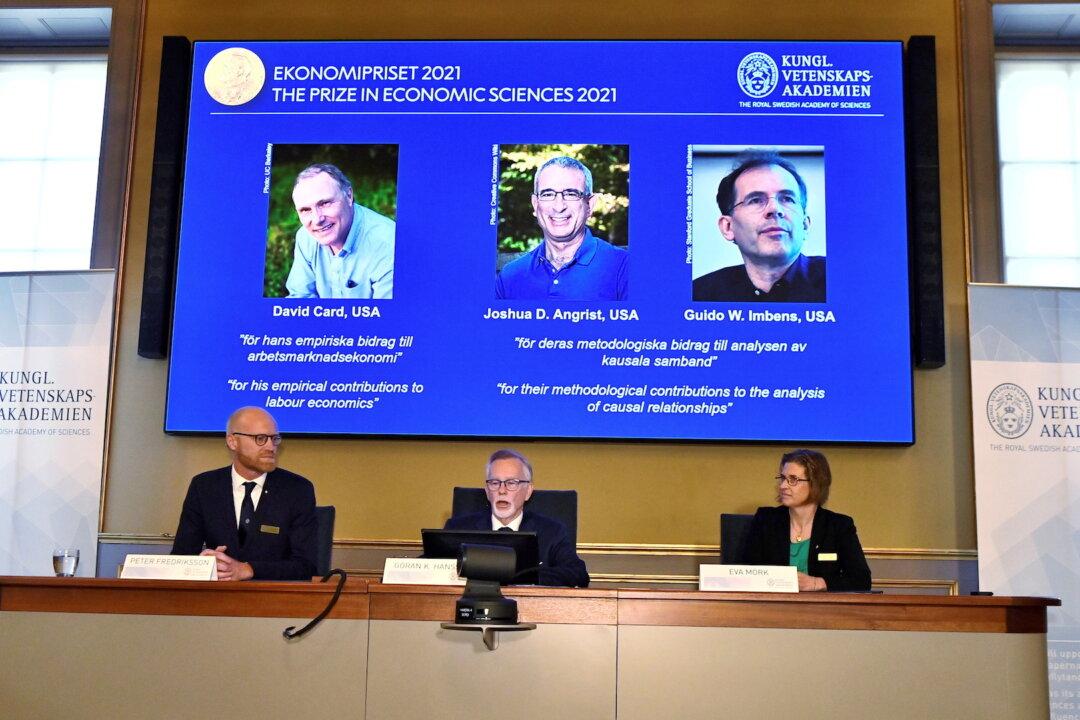The 2021 Nobel Prize in economic sciences was awarded on Oct. 11 to three economists who managed to pioneer research that brought new insights into the labor market.
Joshua Angrist, a U.S. economist who works at the Massachusetts Institute of Technology, and Guido Imbens, a Dutch-born economist who works at Stanford University, jointly received half of the prize money for their methodological contributions to the analysis of causal relationships, the Swedish award-giving body said in a statement.





